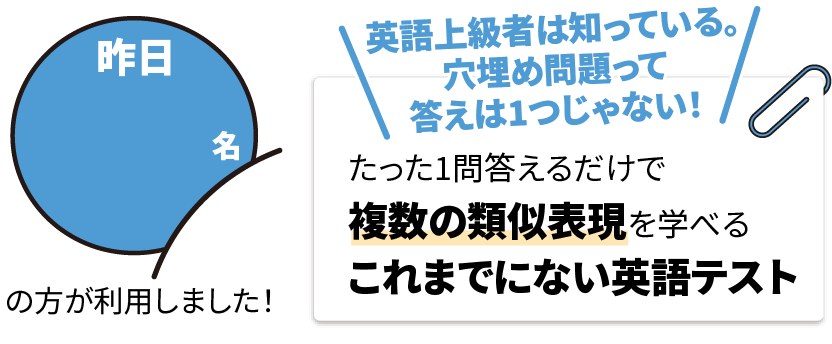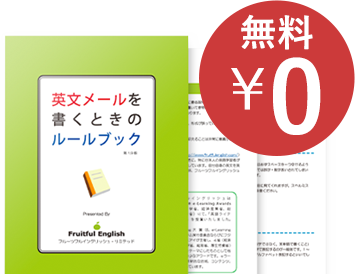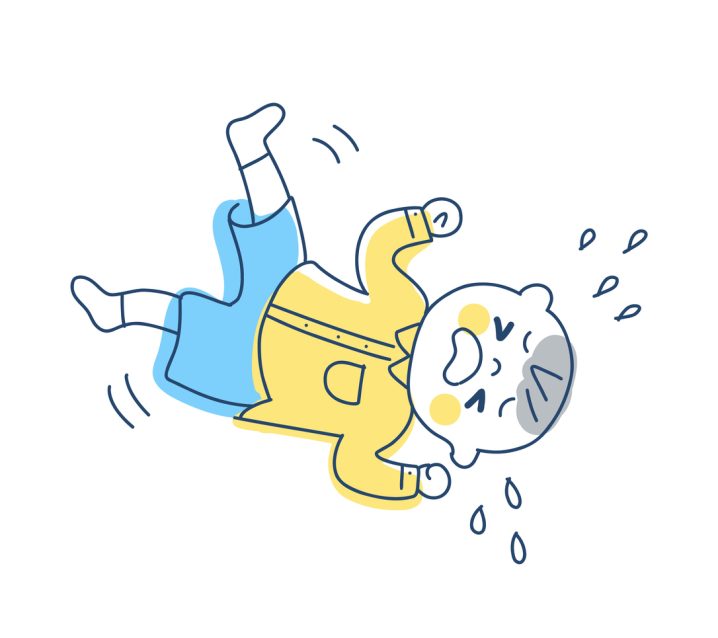みなさん、こんにちは
FEネイティブ講師Simon先生がお届けする英語ブログで学ぶ使える英語表現をシリーズでお届けしています。
※Simon先生のシリーズ前回の記事「Simon先生の英語ブログで学ぶ使える英語表現ーTraining Wheels「補助輪」」を見逃した方はこちらからどうぞ!
さて、今回のブログは、The Terrible Twos 「イヤイヤ期」です。
Hello, this is Simon.
My son was sick with the flu last month. It was a little tough, but we got through it. Then came the next stage, one we call “wagamama mode”, a period lasting about a week of being extremely demanding, which I guess is to be expected after being coddled for a long period of time.
However, this time it didn’t last a week. It is still continuing. It has dawned upon me that we may have entered the “terrible twos”.
We had it a little with our daughter, but the Force seems to be strong in this one. Now, just the tiniest thing sets him off. Before, if he didn’t like some food that you put in front of him, he would shake his head. Now, he throws a massive tantrum. If just the tiniest thing isn’t to his liking, he’ll spit the dummy. It’s like he takes every little mistake we make as a personal insult.
On the flip side, he is becoming a lot more independent, and pretty much wants to do everything himself. This is good to see, but his “My way or the highway.” policy can make things difficult. There are still a lot of things that he really needs a hand with, such as a climbing a jungle gym, or putting on his shoes. If I reach out to support him in case he falls or help get his foot in his shoe, my hand gets brushed away angrily.
Fortunately, his little fits of anger are short lived. After a couple of minutes of bawling and getting it out of his system, he is quickly distracted by something new. Tough as this stage is, I like his new independent spirit and am looking forward to his new developments that result from it.
ーそれでは、本文の中からピックアップした英語表現を見てみましょう!
“coddled”
The verb to “coddle” means “to treat someone in an indulgent and overprotective way”
(e.g. First year students are usually quite coddled, but the strictness ramps up very quickly from the second year.)
Another variation is “molly-coddle”
(e.g. No wonder he’s so sensitive. He’s been molly-coddled his whole life.)
“It has dawned upon me”
To “dawn upon” someone means to become evident or obvious to that person
(e.g. It finally dawned on him that she had been joking all along./As we discussed the project, it dawned upon me that we might have missed one crucial detail.)
“sets him off”
To “set someone off” means to trigger someone to do something such as laugh a lot or become very angry, in the same way that you might set a bomb off
(e.g. The rude treatment by the shop staff set her off./Don’t make him laugh. Once you set him off, he won’t stop.)
“throws a monstrous tantrum”
To “throw a tantrum” means to suddenly become very angry. It is usually used for children and implies a complete overreaction as well as being unreasonable
(e.g. Our son threw a massive tantrum when we took his game away, for not doing his homework.)
“spit the dummy“
To “spit the dummy” means the same as to throw a tantrum. A dummy is a pacifier that babies suck on to calm them down.
So to “spit the dummy” gives the image of a baby spitting the dummy out of its mouth before crying or getting angry about something.
“My way or the highway.”
This basically means “I want to do it my way, or not at all.” It is often used to describe people who are uncompromising
(e.g., there’s no use trying to get my father to try a new way. With him, it’s “My way or the highway.“)
“short lived”
The adjective “short-lived“ means “lasting only for a brief time”
(e.g. Unfortunately, it was a short-lived romance./He is quick to anger, but don’t worry. It’s usually only short-lived.)
There still seem to be many illnesses floating around at the moment. Take care not to catch anything, and see you next month!

Hello! My name is Simon.
I am from New Zealand, and have been living and teaching English in Japan since 1999.
My hobbies include movies, playing the guitar, gardening and hiking.
※このブログでは英語学習に役立つ情報アドバイスを提供していますが、本ブログで提供された情報及びアドバイスによって起きた問題に関しては一切、当方やライターに責任や義務は発生しません。
※ここでの情報や助言を参考に英文を書いたり下した判断は、すべて読者の責任において行ってください。ここに掲載されている記事内の主張等は、個人の見解であり当社の意見を代弁・代表するものではありません。








 (4 イイネ!が押されています)
(4 イイネ!が押されています)




























コメントする